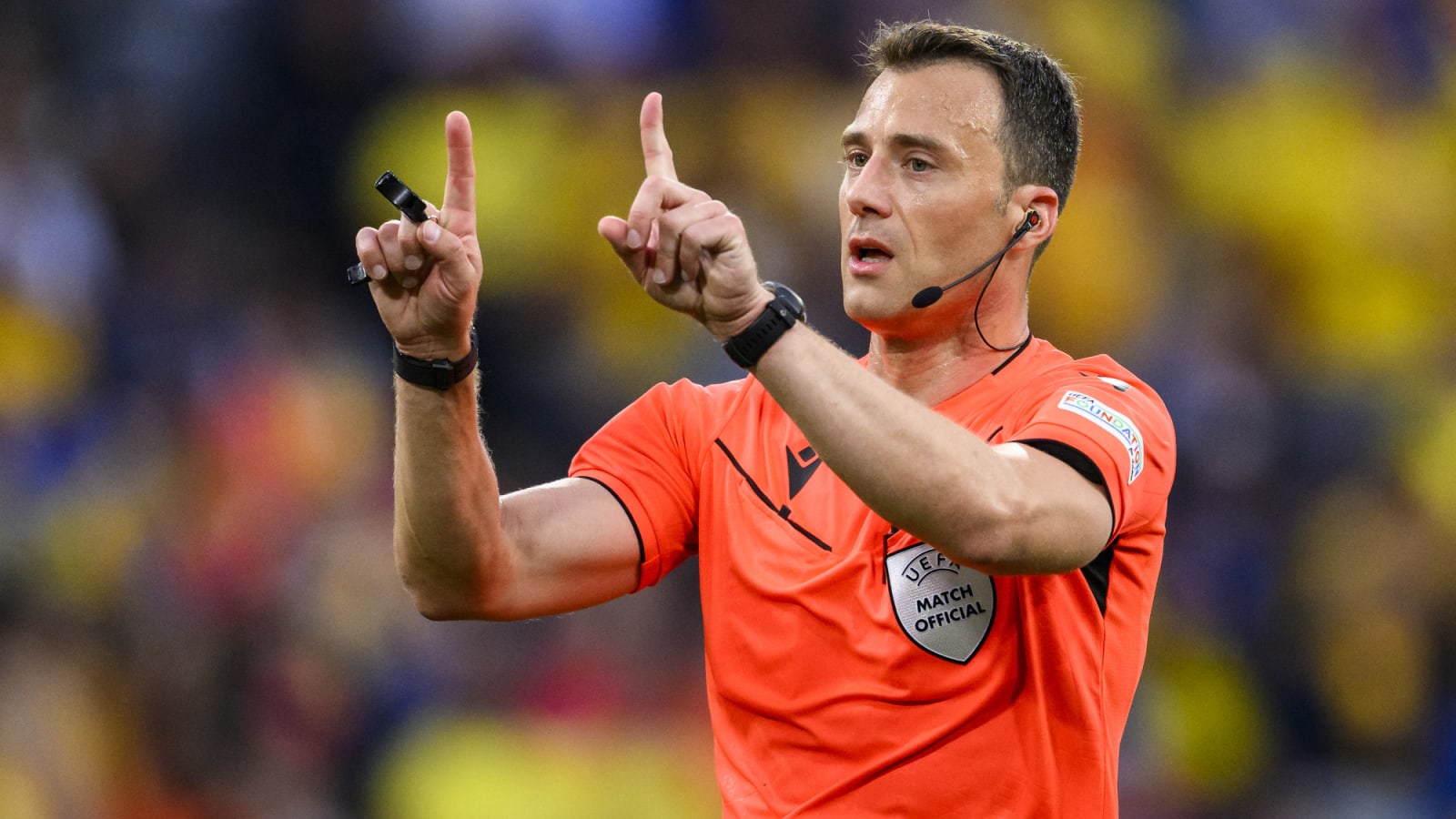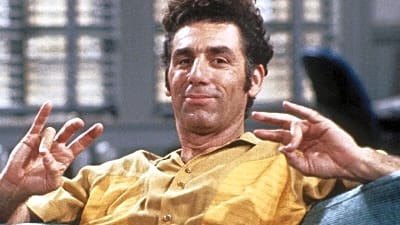
Euro 2024: Referee Felix Zwayer's appointment is curious, but England's ire is self-serving
On Monday, July 7, UEFA — the governing body of European soccer —announced its refereeing lineups for the semifinals of the European Championships.
Slovenian official Slavko Vincic’s appointment for Spain vs. France was met with little fanfare. But when German official Felix Zwayer was announced as the lead official for England vs. Netherlands, the press sat up and took notice.
Zwayer is a known figure to many in international soccer. He’s been refereeing professional games for decades and has covered matches in the Bundesliga, the Nations League and the World Cup. He even covered a game at these very Euros: the Round of 16 clash between the Netherlands and Romania. (It ended 3-0 to the Dutch and no controversial refereeing calls were made.)
Check out Yardbarker's betting hub for odds, picks, predictions and analysis — and start winning TODAY!
But despite his experience, Zwayer has a less-than-honorable history in the sport of soccer. In 2005, he was handed a six-month ban from the game after being punished for his involvement in match fixing by the German soccer association.
That ban has followed Zwayer around for his whole career, and rightfully so; players and fans want to trust their referees, and match fixing eliminates that trust. But it’s worth digging into the circumstances of Zwayer’s ban to understand what part he played in the match fixing for which he was banned — because it wasn’t the part the English press would have you believe.
In 2005, German soccer was rocked by the discovery of a multi-million dollar match fixing operation in its second division. Referee Robert Hoyzer was found to be fixing his own matches with the help of global betting syndicates in Croatia. His crime was uncovered by four other German referees — Zwayer among them — who became suspicious of Hoyzer after he offered them small amounts of money under the table.
The testimonies of Zwayer and his three colleagues were what helped the German soccer federation find Hoyzer and suspend him for life. When Zwayer was found to have received a 300-euro offer from Hoyzer in the past, he too was handed a short sentence — but his was just for six months, as he was only found to have received a suspicious payment, not to have fixed a match himself. “When I got this firm offer from Hoyzer, I went to my refereeing colleagues,” he said. “I stress once again that I strongly rejected this offer straightaway.”
That’s the story of Zwayer’s match fixing: he was a whistleblower for a wider scandal who reported the perpetrator after receiving a strange payment from him. That’s why UEFA has allowed Zwayer to keep his job in the aftermath of the case. We have no evidence that Zwayer was ever a match fixer; if anything, we have evidence that he worked quickly to prevent more match fixing from taking place.
That hasn’t stopped people, particularly members of the English press, from dragging him through the mud. In 2021, when Zwayer refereed a German Cup game between Bayern Munich and Borussia Dortmund, the young English midfielder Jude Bellingham found himself on the losing team and took it out on Zwayer. “You give a referee that has match-fixed before the biggest game in Germany, what do you expect?” he said after Bayern won the match off a Robert Lewandowski penalty. That image — of Bellingham, the young English phenom, being persecuted by Zwayer, the convicted grifter — has endured in England even if it couldn’t be further from the truth.
UEFA have appointed Felix Zwayer, who was previously convicted of match-fixing and banned for six months in 2005 after taking a €300 bribe from another official, as the referee for England vs. the Netherlands on Wednesday.
— ESPN FC (@ESPNFC) July 8, 2024
Jude Bellingham was fined €40,000 for publicly… pic.twitter.com/6We1RVTkVo
When Zwayer was announced as England’s semifinal referee, the English fans and press railed against the decision and questioned the legitimacy of UEFA’s referee vetting programs. But England’s anger against Zwayer and UEFA feels like a panicked search for a scapegoat before its team has even lost. If England had concerns about Zwayer’s honor, it should have spoken up when Zwayer was announced as a tournament referee, or when Zwayer officiated his first match of the Euros. It was notably quiet on both occasions. Zwayer wasn’t a problem until he was placed directly in the path of the English national team.
This is a self-serving reaction. The vast majority of English reports called Zwayer a convicted match fixer but failed to mention his role as a whistleblower. They questioned UEFA’s ethics without properly evaluating Zwayer’s crime, and by doing so they spread harmful misinformation about every party involved.
Match fixing is noxious. It would appear that no one knows that better than Zwayer, who first reported it back in 2005 and has been wiping off its sticky tar ever since.
England will take on the Netherlands in its Zwayer-officiated semifinal on Wednesday, July 10.
Our Bark Bets sports betting newsletter has the news, picks and analysis smart bettors are using to win. Sign up today!
More must-reads:
Breaking News
Trending News
Customize Your Newsletter
 +
+
Get the latest news and rumors, customized to your favorite sports and teams. Emailed daily. Always free!







